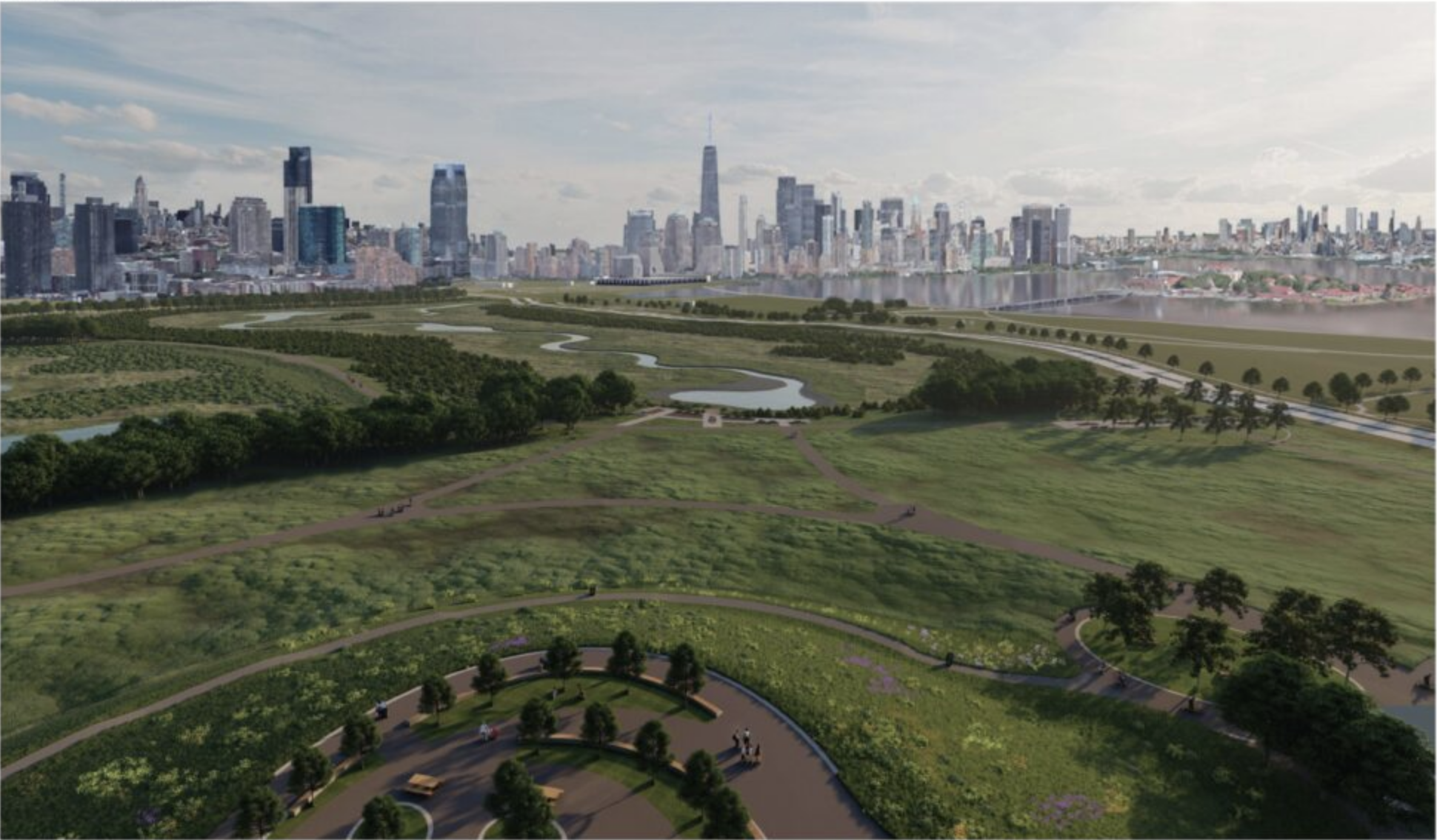Community
Liberty State Park’s Uncertain Future

Jersey Cityans have had roughly a decade to see their home vastly change. High rises, trendy markets, and the occasional quirky coffee shop are just some of what would have been impossible to even conceive of just a few years ago. As the city’s profile continues to grow, so too has the average person’s inability to keep up with Jersey City’s cost of living. Therefore, it is no wonder that despite the renaissance, many are demanding that the brakes on commercialization be pulled on a very public issue – Liberty State Park’s (LSP) Revitalization Program.
Concern over commercial interests is not a baseless one. Roughly two miles southwest of LSP’s Empty Sky Memorial is Liberty National Golf Course – famous for presidential visits, exclusive membership, and its owner, former Reebok CEO Paul Fireman. His failed attempt in 2017 to expand the golf course at the expense of the park’s Caven Point natural habitat resulted in the proposal of the LSP Protection Act, which would permanently protect the park from privatization interests.
In 2021, the New Jersey Department of Environmental Protection (DEP) Commissioner Shawn LaTourette established an advisory task force meant to address LSP’s much needed revamp. The task force would advise the DEP by utilizing community feedback on long-term design decisions and amenities such as recreational facilities and community centers.
In 2022, the NJ State Legislature passed the Liberty State Park Conservation, Recreation, and Community Act. Signed by Governor Murphy, the bill recognizes the need for short and long-term plans that provide new recreational facilities, conservation areas, and climate change protections to withstand events such as flooding. It cites amenities conceived in the park’s original 1977 Master Plan which has been stalled over the years due to contamination, lack of funding, and lack of community input.
The bill also expanded the LSP Design Task Force with six additional members chosen by Governor Murphy, Assembly Speaker Craig Coughlin, and Senate President Nicholas Scutari (two task force members picked by each representative). $50 million has also been allocated to the initially unpaid task force for their operations. Between this 2022 bill and aforementioned LSP Protection Act (which remains in committee), only the latter prohibits the DEP from even considering large-scale commercialization and privatization of the park’s space.
While the ideas of seasonal sports arenas and even a concert venue are being floated, the actual binding legality that would ensure that the park can be used to its full potential, year-round, and universally accessible socioeconomically, are not ensured.
During the DEP’s May 21st meeting, many voiced their concerns during the public forum. Greenville resident Cynthia Matthews pointed out the proposed plans for an amphitheater, stadiums, and the money required to regularly enjoy such structures would exacerbate the fact that “people cannot afford to live in Jersey City”. Commissioner LaTourette on many occasions emphasized the importance of a non-privatized park,
“There is no commercialization, there is no privatization, there can never be.” the Commissioner commented to NJ Spotlight News. But without the passing of the LSP Protection Act, his words are no guarantee. Design Task Force member and LSP activist Sam Pesin continues to raise alarm.
Pesin in the past has voiced concern over two fellow task force members – County Commissioner Jerry Walker and former basketball coach Bob Hurley as part of what he calls “Fireman’s gang”. NJ Spotlight also reported on Paul Fireman’s contributions to foundations belonging to Hurley, Walker, and even decade-long political contributions throughout the state’s political arena in Trenton.
Pesin has also been vocal in accusing Fireman and company of being the source of a mass texting incident where residents were told that the DEP intends to “flood” a significant area of LSP. Though he has denounced these claims as false, Commissioner LaTourette and the task force as a whole have officially remained indifferent to who would benefit from a misinformation ploy – something that Hoboken Mayor Ravi Bhalla in one meeting remarked would be seen in Putin’s Russia, not New Jersey.
Whether it be an extended golf course, an amphitheater, or elegant sports arenas, Jersey City residents have displayed squeamishness to most of it if it means more reasons to spend money than to just have a day at the park. The controversies surrounding LSP are widely centered around whether or not a bureaucracy will withstand the temptation to deliver a modern urban park that rejects the commercial trends that have been defining Jersey City for a decade. Whether or not one believes the Commissioner on his “no commercialization” vow, the passing of the LSP Protection Act would be the only guarantee to residents that would keep him true to his word.
The Commissioner’s office did not respond to Hudpost’s inquiries regarding the integrity of the Design Task Force nor concerns of Paul Fireman’s influence on it. The question has gone beyond whether or not the Revitalization Program is controversial. Rather, the community should consider asking whether the DEP or the NJ Legislature can be more definitive in addressing the existing controversies directly and who stands to benefit from misinforming the public on an already very political project. Accusations and connections made amongst task force members hint that DEP and the Design Task Force continue to operate under ambiguous direction that does not guarantee the prohibition of expanded commercialization and occasionally contradicts the program’s current goals.







